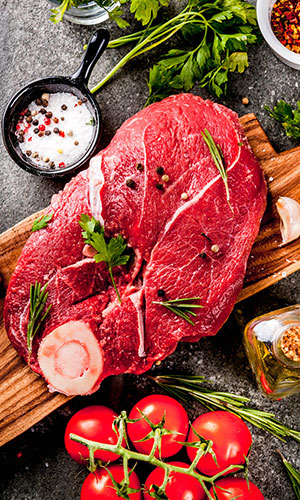Get Easy Health Digest™ in your inbox and don’t miss a thing when you subscribe today. Plus, get the free bonus report, Mother Nature’s Tips, Tricks and Remedies for Cholesterol, Blood Pressure & Blood Sugar as my way of saying welcome to the community!
How to grill up less cancer [slideshow]

4. Choose your meat wisely
If you feel like you have no control over what harmful ingredients are hiding in your meat, you should know that there are a few best practices you can follow to reduce your exposure to these dangerous carcinogens:
Choosing your meat wisely. Raw, unprocessed meat is filled with persistent organic pollutants (POPs) like arsenic, cadmium, mercury, lead, dioxins, pesticides and many others. It even contains polychlorinated biphenyls (PCBs), which are considered one of the most dangerous environmental pollutants when it comes to human health.
But animals raised in areas with clean air and pastures contain very little environmental pollutants. So go for grass-fed or pasture-raised meat whenever you can. Also, since environmental pollutants are primarily stored in an animal’s fat, choosing less fatty cuts of meat is definitely a good idea.
And once you’ve chosen a lean, grass-fed cut of meat, you also have to make sure you cook it right. Researchers found that cooking methods that release fat from red meat (like roasting, broiling or grilling) reduce the concentration of pollutants found in the meat… which makes perfect sense since fat is where the environmental pollutants are stored. Just remember not to char it or AGEs will form.
If you follow these guidelines you may not have to give up red meat cold turkey after all. Because, despite all the bad press, meat does actually have some nutritional merits. It’s one of the best sources of protein, amino acids, vitamin B12 and iron. But regardless of how much meat you choose to eat, always make sure you’re getting enough fresh fruit and vegetables, which are the true foundation of any healthy diet.












